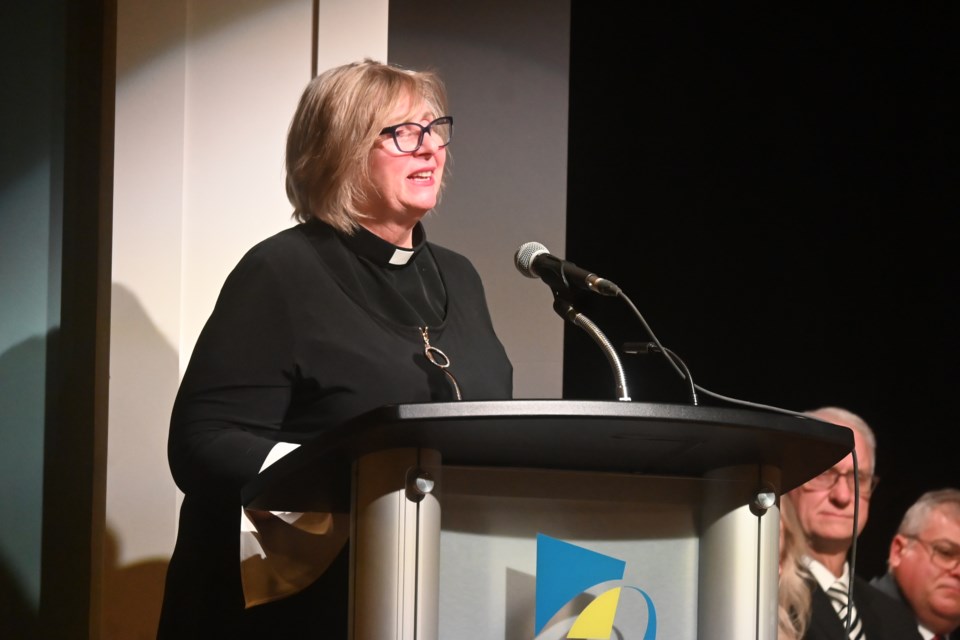Newmarket and other Ontario municipalities earned scorn in a new report calling for an end to prayers at municipal council meetings.
The B.C. Humanist Society released a report analyzing the 2018 inaugural council meetings and found that 156 municipalities (47.6 per cent), including Newmarket, have still maintained the practice. The organization said this runs contrary to a 2015 Supreme Court ruling that found prayers at council meetings to breach a municipality's duty of neutrality.
Newmarket earned a note in the report for having the unique practice of Muslim, Christian and Jewish speakers delivering prayers at its inaugural council meeting, which occurred in 2018 and 2022. But executive director Ian Bushfield said though the town is attempting to be inclusive, the practice in general still acts as exclusionary to the non-religious, other religions, or other sects of the represented religions.
“It’s a good intention, but good intentions can only take you so far. There does need to be a deeper reflection,” he said. “True neutrality doesn’t grant privilege to religious or non-religious views, it remains silent on the issue, and that’s one of the ways you can make sure everyone is included.”
The issue garnered a legal precedent in 2015, in the Saguenay ruling in which an atheist took on the city over prayers at council meetings. There, the Supreme Court of Canada ruled the City of Saguenay breached the “state’s duty of neutrality,” and “turned the meetings into a preferential space for people with theistic beliefs.”
The legal precedent caused some municipalities to change practices around prayers, but not all. The B.C. Humanist Society, which advocates for humanists, atheists and other non-religious, has tracked municipalities still reciting prayers across British Columbia, Manitoba and now Ontario over the past several years.
But Mayor John Taylor stands by the town’s updated practice, which changed from only a Christian religious speaker when he came into office. He said he disagrees with the idea that outright excluding any prayer, representing no one, would be more inclusive.
“I’m confident that people would not feel more included,” he said, adding he has heard from many residents of faith who have appreciated the town’s ceremony. “We stepped very far forward and created a more inclusive environment in our community. That was what was important.”
The town has also added an Indigenous speaker providing a blessing to its inaugural council meetings.
Taylor also highlighted the town's added moment of reflection after the prayers this year, meant to be a moment to encompass all beliefs. He said it was added partly as a result of the work of the association, and to address the court ruling.
“At the inaugural meeting, the town offered blessing and reflections and invited everyone to pause to reflect on their own personal beliefs,” clerk Lisa Lyons said. “It is the town’s hope that we continue to build on the diversity of our community, and that Newmarket serves as an example of what it means to be inclusive of all."
Taylor also said there should be more consideration of inaugural meetings as times of ceremony, somewhat distinct from regular council meetings. The town does not have any prayers at its regular meetings.
But the report makes the case that any prayers at meetings fail to be inclusive.
“This show of interfaith inclusion ironically sends problematic and exclusory messages. It seemingly indicates that monotheistic Abrahamic religions are welcome to pray in Newmarket, while other faith traditions are not,” the report said. “The message is that religion is important and something worth elevating, so much so that we invited more than one religious representative to pray at a meeting.”
Municipalities will not necessarily face any law enforcement for maintaining prayers, Bushfield said. But punishment could come if someone takes up a court challenge against a municipality. They would be up against the supreme court precedent at that point, though Bushfield said a municipality could argue its circumstances are different.
Still, the association hopes that reports like this can prompt municipalities to make a voluntary change.
"It is critical that the state upholds its duty of religious neutrality and that municipal governments cease the practice of opening meetings with prayer,” said Dr. Teale Phelps Bondaroff, lead author on the report and BCHA Research Coordinator.
On the legal front, Taylor said the town would wait to see if someone actually court challenges them or other communities before deciding what to do.
“We live in a very complex world. We live in one of the most multicultural countries in the world,” Taylor said, adding that virtually no one in the community would object to the multi-faith inclusion and the town “will continue to try to be even more inclusive."
Editor's Note, Dec. 12, 2022: This article was altered to clarify the non-religious positions of the B.C. Humanist Association, and of a party in the Saguenay ruling. It has also added reference to the Indigenous speaker present at Newmarket's inagural council meeting.

